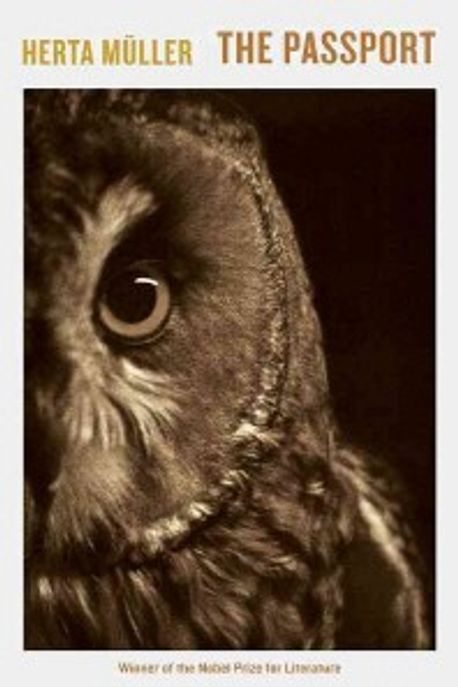The Hunger Angel: A Novel 양장본 Hardcover (A Novel)
헤르타뮐러, M?ler, Herta | Metropolitan Books
0원 | 20120424 | 9780805093018
Herta Mueller is the winner of the 2009 Nobel Prize in Literature, as well as the International IMPAC Dublin Literary Award and the European Literature Prize. She is the author of, among other books, The Land of Green Plums and The Appointment. Born in Romania in 1953, Mueller lost her job as a teacher and suffered repeated threats after refusing to cooperate with Ceausescu's secret police. She succeeded in emigrating in 1987 and now lives in Berlin.
Winner of the Nobel Prize, as well as the IMPAC Dublin Literary Award and European Literary Prize, Muller is a writer to know. Here, teenaged Leo Auberg is picked up by a patrol in January 1945 and promptly taken to a camp in the Soviet Union, where he spends the next five years slaving in a coke-processing plant. Profound hunger makes him see the world in almost hallucinatory detail, and -Muller is said to deliver a sharp sense of life reduced to the minimum: the heart merely a mechanism, thumping like a shovel meeting coal, and sand, snow, and cold acting almost as malevolent forces on their own. Since Muller was hounded from her job in her native Romania for failure to cooperate with Ceausescus secret police, eventually managing to immigrate to Berlin, she has an intimate understanding of totalitarianisms particular terror that should come through here.
A masterful new novel from the winner of the 2009 Nobel Prize, hailed for depicting the "landscape of the dispossessed" with "the concentration of poetry and the frankness of prose" (Nobel Prize Committee) It was an icy morning in January 1945 when the patrol came for seventeen-year-old Leo Auberg to deport him to a camp in the Soviet Union. Leo would spend the next five years in a coke processing plant, shoveling coal, lugging bricks, mixing mortar, and battling the relentless calculus of hunger that governed the labor colony: one shovel load of coal is worth one gram of bread. In her new novel, Nobel laureate Herta Muller calls upon her unique combination of poetic intensity and dispassionate precision to conjure the distorted world of the labor camp in all its physical and moral absurdity. She has given Leo the language to express the inexpressible, as hunger sharpens his senses into an acuity that is both hallucinatory and profound. In scene after disorienting scene, the most ordinary objects accrue tender poignancy as they acquire new purpose - a gramophone box serves as a suitcase, a handkerchief becomes a talisman, an enormous piece of casing pipe functions as a lovers' trysting place. The heart is reduced to a pump, the breath mechanized to the rhythm of a swinging shovel, and coal, sand, and snow have a will of their own. Hunger becomes an insatiable angel who haunts the camp, but also a bare-knuckled sparring partner, delivering blows that keep Leo feeling the rawest connection to life. Muller has distilled Leo's struggle into words of breathtaking intensity that take us on a journey far beyond the Gulag and into the depths of one man's soul.
A masterful new novel from the winner of the 2009 Nobel Prize, hailed for depicting the "landscape of the dispossessed" with "the concentration of poetry and the frankness of prose" (Nobel Prize Committee) It was an icy morning in January 1945 when the patrol came for seventeen-year-old Leo Auberg to deport him to a camp in the Soviet Union. Leo would spend the next five years in a coke processing plant, shoveling coal, lugging bricks, mixing mortar, and battling the relentless calculus of hunger that governed the labor colony: one shovel load of coal is worth one gram of bread. In her new novel, Nobel laureate Herta Muller calls upon her unique combination of poetic intensity and dispassionate precision to conjure the distorted world of the labor camp in all its physical and moral absurdity. She has given Leo the language to express the inexpressible, as hunger sharpens his senses into an acuity that is both hallucinatory and profound. In scene after disorienting scene, the most ordinary objects accrue tender poignancy as they acquire new purposea gramophone box serves as a suitcase, a handkerchief becomes a talisman, an enormous piece of casing pipe functions as a lovers' trysting place. The heart is reduced to a pump, the breath mechanized to the rhythm of a swinging shovel, and coal, sand, and snow have a will of their own. Hunger becomes an insatiable angel who haunts the camp, but also a bare-knuckled sparring partner, delivering blows that keep Leo feeling the rawest connection to life. Muller has distilled Leo's struggle into words of breathtaking intensity that take us on a journey far beyond the Gulag and into the depths of one man's soul.
It was an icy morning in January 1945 when the patrol came for seventeen-year-old Leo Auberg to deport him to a camp in the Soviet Union. Leo would spend the next five years in a coke processing plant, shoveling coal, lugging bricks, mixing mortar, and battling the relentless calculus of hunger that governed the labor colony: one shovel load of coal is worth one gram of bread. In her new novel, Nobel laureate Herta Mueller calls upon her unique combination of poetic intensity and dispassionate precision to conjure the distorted world of the labor camp in all its physical and moral absurdity. She has given Leo Auberg the language to express the inexpressible, as hunger sharpens his senses into an acuity that is both hallucinatory and profound. In scene after disorienting scene, the most ordinary objects accrue tender poignancy as they acquire new purpose - a gramophone box serves as a suitcase, a handkerchief becomes a talisman, an enormous piece of casing pipe functions as a lovers' trysting place. The heart is reduced to a pump, the breath mechanized to the rhythm of a swinging shovel, and coal, sand and snow have a will of their own. Hunger becomes an insatiable angel who haunts the camp, but also a bare-fisted sparring partner, delivering blows that keep Leo feeling the rawest connection to life. Herta Mueller has distilled Leo's struggle into words of breathtaking intensity that take us on a journey far beyond the Gulag and into the depths of one man's soul.
It was an icy morning in January 1945 when the patrol came for seventeen-year-old Leo Auberg to deport him to a camp in the Soviet Union. Leo would spend the next five years in a coke processing plant, shoveling coal, lugging bricks, mixing mortar, and battling the relentless calculus of hunger that governed the labor colony: one shovel load of coal is worth one gram of bread. In her new novel, Nobel laureate Herta Muller calls upon her unique combination of poetic intensity and dispassionate precision to conjure the distorted world of the labor camp in all its physical and moral absurdity. She has given Leo the language to express the inexpressible, as hunger sharpens his senses into an acuity that is both hallucinatory and profound. In scene after disorienting scene, the most ordinary objects accrue tender poignancy as they acquire new purpose - a gramophone box serves as a suitcase, a handkerchief becomes a talisman, an enormous piece of casing pipe functions as a lovers' trysting place. The heart is reduced to a pump, the breath mechanized to the rhythm of a swinging shovel, and coal, sand, and snow have a will of their own. Hunger becomes an insatiable angel who haunts the camp, but also a bare-knuckled sparring partner, delivering blows that keep Leo feeling the rawest connection to life. Muller has distilled Leo's struggle into words of breathtaking intensity that take us on a journey far beyond the Gulag and into the depths of one man's soul.
"Wry and poetic, and Muller's evocative language makes the abstract concrete as her narrator's sanity is stretched...Boehm's translation preserves the integrity of Muller's gorgeous prose, and Leo's despondent reveries are at once tragic and engrossing." --Publishers Weekly (Starred Review) "The stunning, exhilarating, heartbreaking culmination of Muller's work as a novelist...A 300-page prose poem of resistance to totalitarian repression, the book is a haunting paean to the human angel--the inventive, imaginative, invincible force that transcends suffering and absement, that defies depersonalization and deprivation to survive, and even thrive." -- The Wichita Eagle







